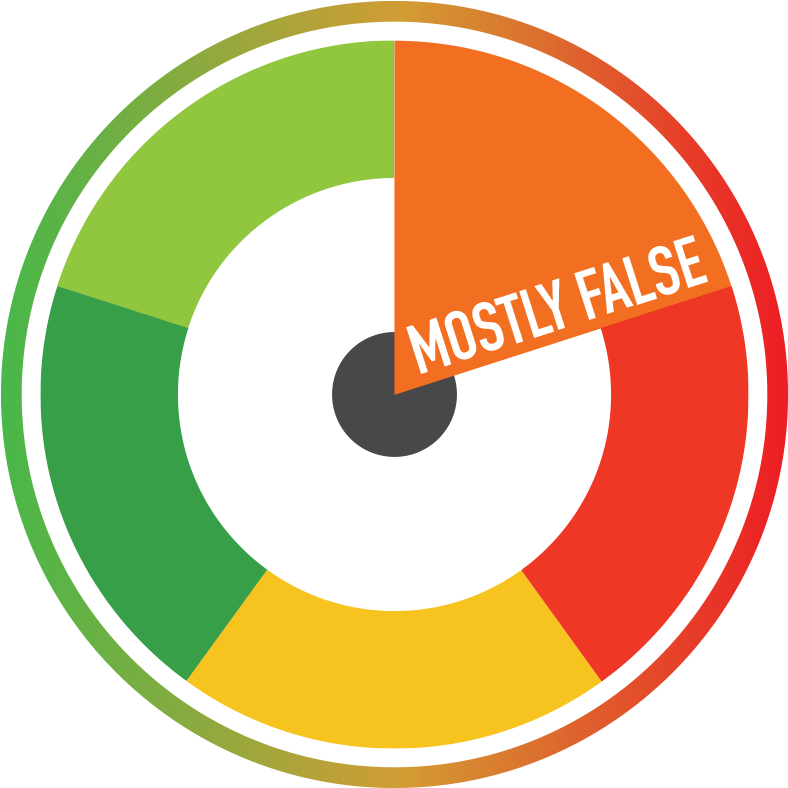On February the 24th the Irish minister of Education Norma Foley of the party Fianna Fáil made a statement about antigen testing at schools. “The World Health Organization does not recommend antigen testing in schools.” Her claim is mostly false.
The Education minister stated in a radio interview with RTÉ radio 1 that the WHO does not recommend antigen testing at schools. Although she didn’t refer to a direct source in the interview, her statement can be based on a report from the World Health Organization about rapid antigen testing.
First of all, to check this statement we tried to find the original quote from the World Health Organization. In our search we found the original report from the World Health Organization: “SARS-CoV-2 antigen-detecting rapid diagnostic tests, an implementation guide making multiple statements about Antigen Testing.” This is the only recent report from the WHO about the use of antigen tests at schools and in general. In the report the World Health Organization makes multiple statements about the situations when to use antigen tests.
Performance criteria
Rapid antigen tests that meet the recommended performance criteria should be considered for use only in areas where NAAT tests (PCR tests) are unavailable or where the health system may be overburdened. This means that the WHO only makes a suggestion about Antigen Testing. There is nothing said about no recommendation or prohibition such as claimed by Norma Foley.
Support
Rapid antigen testing should be used to support outbreak investigations in semi-closed groups like schools, care homes, workplaces or where COVID-19 outbreaks have been confirmed. Rapid tests could be used to screen at-risk individuals and rapidly isolate positive cases. The WHO refers explicitly to the use of antigen tests at schools. The organization describes that the use of antigen testing in school is indeed a possible option and not an ‘out of the question’ statement.
Widespread community transmission
Antigen tests may be used for early detection and isolation of positive cases in health facilities, Covid-19 testing centers/sites, care homes, prisons, schools, front-line and health care workers. The indicated statement here is that antigen tests can be used for widespread community transmission in school. This means that antigen testing could be used to detect the virus in places, like schools where there are signs of an outbreak. This shows just like the previous statements that WHO doesn’t ‘not recommend’ the use of Antigen Testing in school. They simply make a recommendation of situations in which to use the rapid antigen tests.
European Commission criteria
The European Commission published on October the 28th 2020 a report with recommendations for testing strategies, including the use of rapid antigen tests. According to the report from the European Commission the antigen tests can be used in certain settings or scenarios.
The European Commission gathered information from the World Health Organization. According to the WHO, while the antigen tests offer helpful solutions for the diagnosis of Covid-19 in certain settings, their performance is not flawless. More European countries want to use rapid tests like the antigen test in medical settings and explore their wider use. WHO recommends rapid antigen tests that have performance requirements of > 80% sensitivity and > 97% specificity. These tests should be used when the availability of RT-PCR tests is temporarily limited. Rapid antigen tests should also be used by trained operators, similarly with the manufacturer’s instructions and within the first 5-7 days following symptoms.
Agreement
In a recent report from the European Commission, named “A common list of COVID-19 rapid antigen tests, including those of which their test results are mutually recognized, and a common standardized set of data to be included in COVID-19 test result certificates” are final statements about the use of rapid antigen tests. This report was published seven days prior to the radio interview with Norma Foley. EU member states agreed on the criteria to be used for the selection of rapid antigen tests. In particular on the clinical performance and on the scenarios and settings which these tests would be appropriate to use. The fact that there is an agreement made with all the member states of the European Union, says something about the statement. The member states (including Ireland) made an agreement about use of the antigen tests when acknowledged. Norma Foley was not in the position to make this claim, because there is an European Union agreement.
Conclusion
In short, Education minister Norma Foley states that antigen testing in schools is not recommended. But the reports from the World Health Organization and European Commission say otherwise. The WHO recommends antigen testing in schools but only in certain situations such as widespread community transmission and outbreak investigations. Therefore, the statement made by Norma Foley is incomplete. A second component that weighs into this claim is the report from the European Commission. Agreements have been made with member states about the collective use of antigen tests and countries cooperate in researching rapid antigen tests. According to this report it can be used in situations where it is recognized. Foley did not take this agreement into consideration while making this statement on the radio. Therefore, the claim ‘‘The WHO does not recommend antigen testing at schools’’ made by Irish minister of Education Norma Foley is incomplete. We conclude that her claim is mostly false.
RESEARCH | ARTICLE © Sterre Draaisma and Nayara Garcia de Groot, Windesheim University, Zwolle, The Netherlands
Leave your comments, thoughts and suggestions in the box below. Take note: your response is moderated.






